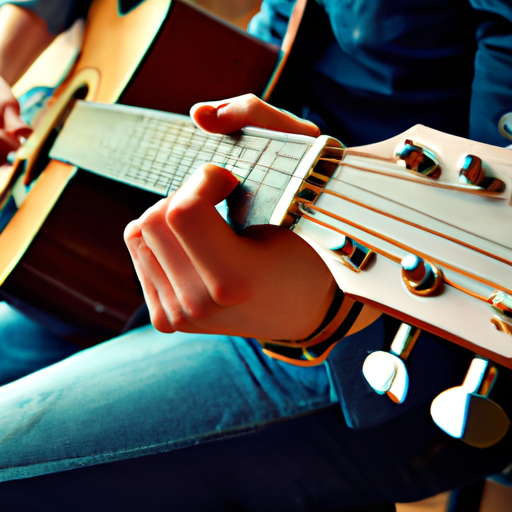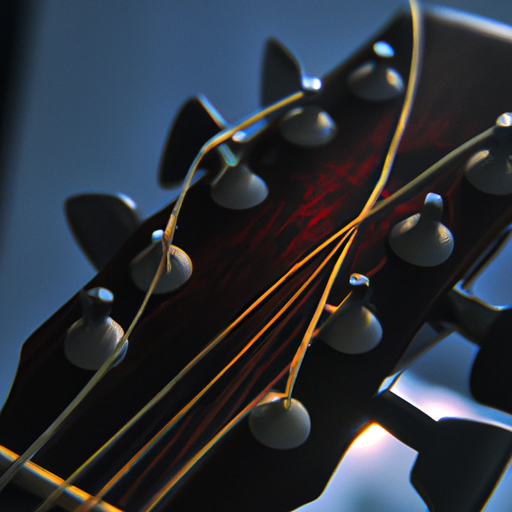
Guitars are delicate instruments that require proper care and maintenance for optimal performance and longevity. Whether you're a beginner or a professional guitarist, it's important to understand the importance of guitar maintenance and incorporate it into your routine. This article discusses the various aspects of guitar maintenance, including changing strings, cleaning and polishing, adjusting guitar action, maintaining proper tuning, protecting from damage and wear, storing, caring for electronics, and dealing with humidity and temperature changes.

Strings are the most important part of a guitar, and their quality and condition have a significant impact on its sound and playability. Over time, strings become worn out and lose their tone, making it crucial to change them regularly.

It's important to know when to change your guitar strings. Signs of worn-out strings include dullness in tone, difficulty in staying in tune, and visible rust or discoloration.
Using high-quality strings is critical for maintaining consistent sound and playability. Cheap strings tend to snap more often and produce inconsistent tones.
The frequency with which you should change your guitar strings depends on how often you play. A general rule of thumb is to change your strings every 3-4 months, but frequent players may need to change them more often.
Click here to rent a guitar for your practice and performance needs.
Regular cleaning and polishing of your guitar is essential for maintaining its appearance and performance. Dirt and grime can accumulate on your guitar's body and fretboard, affecting its sound and playability.
A clean guitar not only looks better but also plays better. Regular cleaning and polishing helps to remove dirt, sweat, and oils that can build upon the body and neck of the guitar.
When cleaning your guitar, use a soft cloth and be gentle to avoid scratching the finish. For polishing, use a specialized guitar polish and a clean cloth. Avoid using household cleaners, which can damage the finish of your guitar.
Some recommended products for cleaning and polishing your guitar include Dunlop 65 Ultimate Lemon Oil, Gibson Pump Polish, and MusicNomad Guitar Detailer.
Guitar action refers to the distance between the strings and the fretboard. Low action can make playing easier, while high action can make playing more difficult. The ideal action for your guitar depends on your playing style and personal preference.
You can measure the action of your guitar by placing a straight edge across the fretboard and measuring the distance between the fretboard and the strings at the 12th fret.
To adjust the action of your guitar, you can either adjust the truss rod or the bridge. Adjusting the truss rod involves turning a screw located at the headstock of the guitar, while adjusting the bridge involves changing the height of the saddle.
Guitar tuning refers to the process of adjusting the tension of the strings to produce the desired pitches. Standard tuning for a six-string guitar is E-A-D-G-B-E.
Proper tuning is essential for producing the correct notes and chords. Poor tuning can result in a guitar that sounds out of tune and is difficult to play.
Regular tuning of your guitar is important to maintain proper pitch. You can use an electronic tuner, a pitch pipe, or tune by ear to keep your guitar in tune.
Guitars are susceptible to damage and wear from a variety of factors, such as humidity, temperature changes, accidental drops, and scratches.
To protect your guitar from damage and wear, store it in a safe place, use a protective case, and avoid exposing it to extreme temperatures or humidity. You can also use a strap to prevent accidental drops and scratches.
Some recommended products for guitar protection include hardshell cases, padded gig bags, and humidifiers to regulate the humidity levels in your guitar's environment.
When storing your guitar for an extended period, it's important to follow some best practices to ensure its longevity. Store your guitar in a cool, dry place with a consistent temperature and humidity level.
The recommended storage conditions for guitars include a temperature between 60-75 degrees Fahrenheit and a humidity level between 40-60%.
Before storing your guitar, loosen the strings, clean and polish the body and neck, and remove any accessories or items from the case to prevent damage.
Guitar electronics refer to the components of the guitar that produce sound, such as pickups, volume and tone controls, and amplifiers.
To clean and maintain your guitar electronics, use a soft cloth and specialized electronics cleaner. Avoid using water, household cleaners, or abrasive materials that can damage the components.
Common guitar electronics issues include crackling or static sounds, weak or no sound, and intermittent connections. If you experience these issues, you may need to replace the affected components or have them repaired by a professional.
Humidity and temperature changes can cause significant damage to your guitar by warping or cracking the wood, affecting the finish, and causing rust or corrosion on the metal components.
To protect your guitar from humidity and temperature changes, use a humidifier to maintain a consistent level of humidity, and avoid exposing your guitar to extreme temperatures or sudden temperature changes.
Some recommended products for humidity and temperature control include D'Addario Humidipak, Planet Waves Humidity and Temperature Sensor, and Oasis Guitar Humidifier.
Proper guitar maintenance is essential for maintaining the sound, playability, and longevity of your instrument. By following the tips and recommendations in this article, you can implement a regular guitar maintenance routine and ensure optimal performance for years to come.